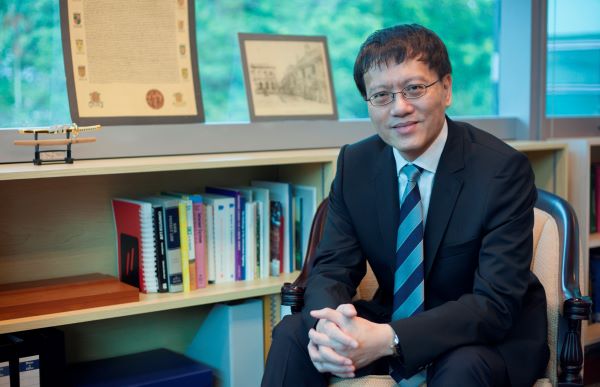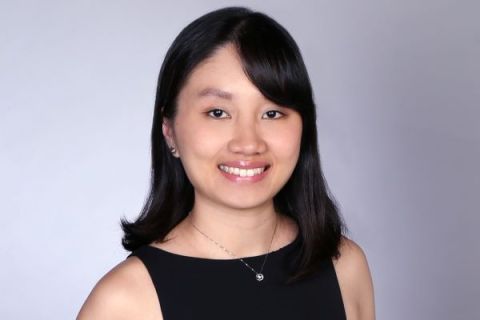
By Vince Chong
SMU Office of Research – The Singapore Court of Appeal ruled significantly in a recent case that, among other things, deposits paid in property transactions must be reasonable by industry standards. Otherwise, it may not be forfeited even if the buyer fails to complete the sale.
This was important on many fronts, not least because it reaffirmed the efficacy of Singapore’s unique independent counsel scheme, says SMU Yong Pung How Chair Professor of Law Yeo Tiong Min, who had used his expertise in contract law to brief the court as an independent advisor.
In many countries, amicus curiae – translated from Latin it means “friend of the court” – submissions, or briefs, contain research and advice from independent experts that typically help in cases involving unrepresented parties, or causes such as animal rights or climate protection. It is generally not used where parties are represented by legal counsel, whose submissions judges generally rely on for assistance.
In Singapore, however, Professor Yeo tells the Office of Research, judges often, comparatively speaking, call on third-party academics for specific, technical perspectives, even when parties engage their own lawyers. In Singapore, amicus curiae are now known as independent counsel.
“I would say the societal impact of legal scholarship in Singapore is stronger than in most other countries,” he says.
As the Court of Appeal explained in its November 2024 judgement, it had invited Professor Yeo to act as independent counsel “given the importance of deposits”, which extends “beyond the conveyancing context we were concerned with.”
The SMU connection
Singapore’s unique and effective independent counsel scheme, Professor Yeo notes, was firmly backed by its late former Chief Justice, Dr Yong Pung How, for whom the SMU law school is named. Dr Yong, who passed away in 2020, was often recognised for cutting the average time taken for court hearings and notably clearing a backlog of more than 2,000 cases within a decade of being named chief justice.
Take the appellate ruling for example, Professor Yeo says: With the assistance of his academic research, the court reached a “commercially-welcome decision” that simplifies other cases like it down the road, which will lead to speedier resolutions.
“The starting point… in the future will be how reasonable the deposit amount is by reference to a customary sum at the time the contract is made,” explains the academic, himself a former dean of the law school.
The alternative is for courts to try every case on its own specificities to determine what would be regarded as a genuine pre-estimate of loss at the time of contracting, he says. This will result in a more stressful and expensive process for the litigating parties.
“Now, there will be fewer quarrels between parties, fewer disagreements, and ultimately fewer cases going to the courts,” he says.
The ramifications of the recent judgment are also likely to extend beyond property transactions, Professor Yeo says, further reinforcing the value of Singapore’s independent counsel blueprint. Similar cases in the tourism industry, for example, could benefit from the ruling, as consumers have been known to change their plans after paying deposits for tour packages.
“Closely-knit” legal profession
Singapore’s “friend of the court” system, Professor Yeo continues, stems from “very close relationships” between the different parts of the legal profession.
“We are a small country and you can see that the interaction between the judiciary, the government, its academia, and the legal community is at a totally different level from most other countries,” Professor Yeo says.
“There’s a lot of conversation going on between the different branches of the legal profession.”
Having a smaller population also means Singapore has not had “the luxury of building the level of specialist practices” comparable to large jurisdictions like the UK, for example, where there are barristers who may work on nothing but areas such as defamation. Consequently, Singapore’s courts have had to adapt and seek specialists from academia for complex legal issues, he says.
Another key feature, he continues, lies in the level of interaction between the court and the independent advisor. Outside of Singapore, amicus briefs are typically submitted and read by judges who do not often engage directly with authors.
“In Singapore, there is real discourse between judges and academics, including disagreements and counter-arguments, and points may be raised during oral submissions that might not have been covered in the brief,” he notes.
Courts using more academic views
Professor Yeo believes there is an upward tick in Singapore’s courts using independent counsel briefs. This was his fifth time acting as an independent advisor to the judiciary, which he says has also called on colleagues such as Professor Lee Pey Woan, the current dean of the law school, and Professor David Llewelyn, an expert in intellectual property law.
One reason for this might be the increased exposure that academics receive from presenting papers and lectures, and publishing research relevant to the development of Singapore law. For instance, Professor Yeo notes, it might not be that much of a coincidence that the Singapore judiciary appointed more “friends of the court” at around the same time that Dr Yong founded in 2007 the eponymous Yong Pung How Professorship of Law Lecture Series.
As chair of the prestigious professorship, Professor Yeo has given a lecture every year – save for 2020 when logistics were disrupted by Covid – since being appointed to the role in 2007.
In fact, he was involved in the recent appellate proceedings because of a lecture that he gave in 2013, titled Deposits: At the Intersection of Contract, Restitution, Equity and Statute.
Of the five cases that he was engaged as independent counsel, Professor Yeo believes the latest one makes the broadest impact on society. The others focused mainly on international cross-border commercial issues.
“Being a friend of the court provides a powerful opportunity to make a real impact on issues of governance of society,” Professor Yeo says.
“No other country… allows academics such opportunities to make useful contributions to society at this level, and we have been making that contribution.”
Back to Research@SMU February 2025 Issue
See More News
Want to see more of SMU Research?
Sign up for Research@SMU e-newslettter to know more about our research and research-related events!
If you would like to remove yourself from all our mailing list, please visit https://eservices.smu.edu.sg/internet/DNC/Default.aspx

